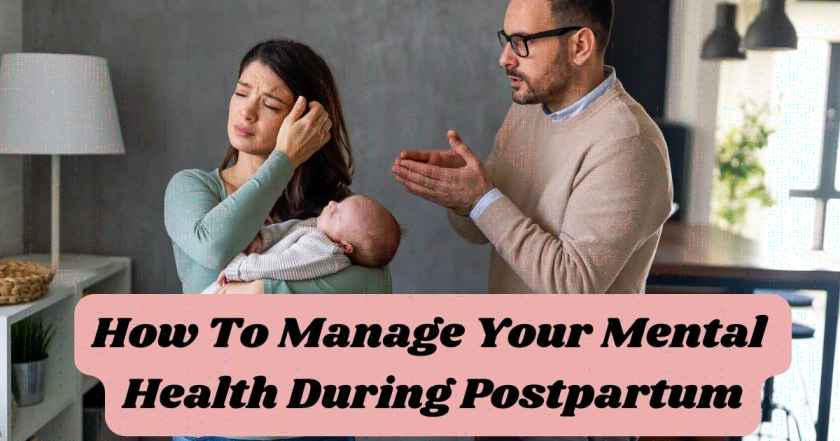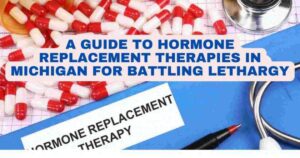The birth of a child is a monumental event in a person’s life that brings joy, but it can also come with unexpected mental health challenges. Postpartum mental health is a critical aspect that requires attention and care. In this article, we’ll discuss practical strategies to nurture your well-being during this precious time.
Understanding Postpartum Mental Health Changes

Becoming a new parent can trigger a rollercoaster of emotions, from elation to anxiety. The joy of welcoming a child often coexists with a sense of overwhelming responsibility. Hormonal shifts after childbirth significantly affect mood and can lead to conditions such as postpartum depression or anxiety. It’s important to acknowledge these feelings and understand they are common and treatable.
Postpartum mental health changes vary widely among new mothers. While some may experience the “baby blues,” a more transient state of emotional distress, others might face more severe and long-lasting symptoms. Recognizing the signs early on can facilitate quicker interventions and support. Fatigue, irritability, and trouble bonding with the baby are just a few symptoms to be aware of.
Seeking Professional Help: When and How to Find Therapy or Counseling
For those experiencing significant difficulty in coping, seeking the aid of a mental health professional may be necessary. Recognizing when to seek help is a critical step. Persistent feelings of sadness, disinterest, or harmful thoughts should prompt consultation with a healthcare provider.
Finding the right therapist or counselor is essential for effective treatment. A postpartum therapist in Baltimore, for example, can provide tailored support and strategies for new mothers coping with postpartum challenges. These therapists understand the unique dynamics of the postpartum period and offer compassionate, specialized care for postpartum depression, anxiety, and more.
Referrals from one’s primary care physician, obstetrician, or trusted friends can be helpful in the search for a therapist. Additionally, local health departments often have information on community mental health services that are accessible and affordable.
Strategies for Managing Anxiety and Depression After Childbirth
One essential strategy for managing postpartum anxiety and depression is maintaining a balanced routine. Even with the hectic schedule of caring for a newborn, setting time aside for personal relaxation can be immensely beneficial. This may include activities like light exercise, reading, or engaging in a hobby that brings joy and relaxation.
Creating a comfortable and calming environment at home can also assist in improving mental health. For instance, incorporating an artificial tree for indoor decor can brighten the space and reduce stress without the added responsibility of upkeep. The therapeutic effect of nature, even replicated through high-quality faux plants, can lend a soothing touch to any room.
Additionally, new mothers should not shy away from seeking professional advice when necessary. Addressing concerns early with a healthcare provider can prevent more serious mental health issues. Taking prescribed medication or attending therapy sessions should be viewed as a strength, not a weakness, as they are steps toward recovery.
The Importance of Sleep and Nutrition in Postpartum Recovery

Sleep is a fundamental pillar of postpartum recovery, yet it’s often elusive with a newborn. Prioritizing rest whenever possible is essential, as sleep deprivation can exacerbate mental health issues. Napping when the baby naps or seeking assistance from a partner or family member to watch the infant while resting can make a substantial difference.
Nutrition plays a crucial role in a new mother’s health. Eating a well-balanced diet rich in vitamins, minerals, and protein can provide the necessary energy and aid in the body’s recovery process. Foods rich in omega-3 fatty acids, for example, can support mood regulation and overall brain health.
Hydration is another key element that should not be overlooked. Adequate water intake is vital, especially for breastfeeding mothers. It’s beneficial to keep a water bottle nearby to remind oneself to drink regularly throughout the day.
Building a Support System for New Mothers
Community and social support are invaluable resources for new mothers navigating postpartum challenges. Having friends or family members who offer help can ease the burden of infant care and household tasks. Joining a support group for new parents can also provide a platform for sharing experiences and finding solace in common struggles.
Engaging with other mothers who are going through similar experiences can create a sense of solidarity and reassurance. This connection can be found through local community centers, parenting classes, or online forums. Sharing coping techniques and encouragement often leads to a beneficial exchange of knowledge and empowerment.
Overall, managing mental health during the postpartum period requires a comprehensive approach that includes personal strategies, support systems, and professional assistance when needed. By prioritizing self-care, rest, nutrition, and seeking help, new mothers can navigate the complexities of postpartum emotions more effectively, leading to a healthier and more joyful experience of motherhood.








